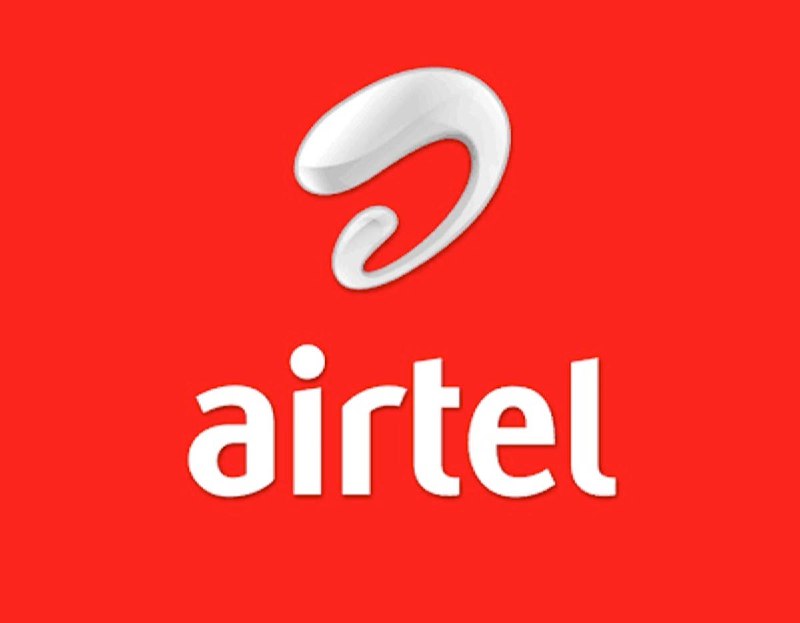Technology
Visa Acquires Fintech Firm Plaid for $5.3bn

By Adedapo Adesanya
Top financial service company, Visa Incorporated, has announced that it plans to acquire financial platform, Plaid, in a deal believed to worth about $5.3 billion.
The acquisition will see Visa become the owners of Plaid, a network that is used to securely connect financial accounts used to manage its financial lives. Already, both parties have signed a definitive agreement.
Speaking on the acquisition of the service, Chief Executive Officer (CEO) and chairman of Visa, Mr Al Kelly, stated that, “We are extremely excited about our acquisition of Plaid and how it enhances the growth trajectory of our business.”
“Plaid is a leader in the fast growing fintech world with best-in-class capabilities and talent. The acquisition, combined with our many fintech efforts already underway, will position Visa to deliver even more value for developers, financial institutions and consumers,” he noted.
“This acquisition is the natural evolution of Visa’s 60-year journey from safely and securely connecting buyers and sellers to connecting consumers with digital financial services,” he added.
“The combination of Visa and Plaid will put us at the epicenter of the fintech world, expanding our total addressable market and accelerating our long-term revenue growth trajectory,” Mr Kelly said further.
On the part of the acquired company, Co-founder and CEO, Plaid, Mr Zach Perret said that the deal will make sure that service operates at a global level.
“Plaid’s mission is to make money easier for everyone, and we are excited for this opportunity to continue delivering on that promise at a global scale.
“Visa is trusted by billions of consumers, businesses and financial institutions as a key part of the financial ecosystem, and together Visa and Plaid can support the rapid growth of digital financial services,” he said.
In a world where connectivity between financial institutions and developers are increasing, the Visa’s acquisition of Plaid represents both an entry into new businesses and complementary enhancements to Visa’s existing business.
According to market analysts, Plaid’s fintech-centric business will open new market opportunities for Visa both in the US and internationally and also, the combination of both parties provides the opportunity to deliver enhanced payment capabilities and related value-added services to fintech developers.
It is also believed that the acquisition will enable Visa to work more closely with fintechs through all stages of their development and drive growth in Visa’s core business.
Once the deal is closed within the next three to six months, the combination of Visa and Plaid is expected to provide significant benefits to developers, financial institutions and consumers which will enable companies enhance their global services while protecting important financial data.
The transaction is however subjected to regulatory approvals and other customary closing conditions. Visa will fund the transaction from cash on hand and debt issuance at the appropriate time. This transaction will have no impact on Visa’s previously announced stock buyback program or dividend policy.
Technology
African Startups Raise $174m in January 2026 as Trend Extends for Fourth Year

By Adedapo Adesanya
African startups raised a total of $174 million in January 2026, according to the latest data released by Africa: The Big Deal, the platform that tracks all startup funding across the continent.
The platform, which considers disclosed deals of $100,000 and above, showed that the figure represents a sharp slowdown compared with January 2025, when startups raised $276 million, and is also well below the $263 million monthly average recorded over the previous 12 months.
However, the funding levels remain higher than in January 2023 at $106 million and in January 2024 at $85 million.
The data revealed that only 26 startups announced funding rounds of at least $100,000 in the review month, pointing to caution among investors.
This is just above half of the monthly average over the past year and significantly below the number of deals recorded in January 2025.
Based on this, January 2026 marks the lowest monthly tally since at least 2020, highlighting how selective capital deployment into African startups has become as investors prioritise fewer, larger, and often later-stage bets.
“Actually, a MoM dip between December and January is something the ecosystem’s already experienced in 2023, 2024 and 2025,” according to The Big Deal.
The data showed that Egypt-based fintech valU emerged as the top fundraiser after securing $64 million in debt financing from the National Bank of Egypt (NBE).
Nigeria’s mobility financing startup MAX followed, raising $24 million through a mix of equity and asset-backed debt, while Terra Industries raised $11.75 million in the defence sector, to further step up its infrastructure and bet on expansion.
NowPay, an Egyptian fintech, raised $20 million, Moroccan proptech startup Yakeey came in with a $15 million Series A, and Côte d’Ivoire-based fintech Cauridor raised $3.5 million in seed funding to enhance its payment infrastructure, support expansion efforts, and strengthen its presence in new markets.
There were three noteworthy announcements in January: Flutterwave acquired Mono in Nigeria for around $30 million in an all-stock deal; Commit acquired tech talent start-up Savannah; and Izili Group acquired Qotto, a company specialising in off-grid solar solutions operating in Benin and Burkina Faso. The transaction expands Izili’s footprint to six African countries and strengthens its position in rural and off-grid electricity access.
Technology
Airtel Nigeria to Lead Next Phase of Telecoms Growth With Quality of Service Advancements

Airtel Nigeria has unveiled a robust update on a range of network, infrastructure and technology advancements that position the company at the forefront of quality of service leadership in Nigeria’s telecommunications industry. Announced at its first media roundtable of 2026, the updates reflect sustained investments made over the past 12 to 24 months and signal an accelerated push to stay ahead of surging data demand in a rapidly digitising economy.
Speaking to senior editors and industry correspondents, Airtel Nigeria Chief Executive Officer, Dinesh Balsingh, said the company’s strategy is anchored on deliberate scale, depth and resilience.
“Over the last two years, we have invested with discipline and clarity to strengthen our network nationwide. Those investments are now translating into measurable improvements in performance, customer experience and reach, including in underserved and hard to reach communities,” he said. “In 2026, we are accelerating these upgrades because Nigeria’s data appetite is growing, and leadership in this industry will belong to those who plan ahead.”
At the core of Airtel Nigeria’s quality of service drive is the rapid expansion of its network footprint. Since December 2023, the company has increased the number of network sites by 15.5%, adding 2,242 new sites and bringing its total to nearly 16,711 nationwide. Further deployments are planned in 2026 to strengthen coverage, capacity and resilience across urban and rural locations.
Network capacity upgrades have also reached a significant scale. In 2025, Airtel completed capacity enhancements on 30% of its sites, covering over 5032 sites nationwide. Today, 99% of Airtel Nigeria’s sites deliver high-speed 4G mobile broadband, establishing the operator as a full nationwide 4G network. This year, capacity upgrades are being extended to more sites to sustain performance as data usage continues to rise.
According to Chief Technology Officer, Harmanpreet Singh Dhillon, spectrum depth and optimisation remain critical to network quality. “We have increased our 4G spectrum by 10MHz and we are actively optimising our holdings. These actions allow us to support higher data throughput, better speeds and more consistent service, especially in high-traffic areas,” he said.
Airtel Nigeria is also accelerating its 5G rollout. Over the last three months, the company has more than doubled the number of active 5G sites. The accelerated 5G upgrade happening now will connect the top 20 Nigerian cities to high-speed 5G networks, with a significant part of Airtel’s network in these cities becoming 5G-enabled in the coming year.
Beyond terrestrial infrastructure, Airtel is extending connectivity through space-based solutions. The company has established and signed partnerships with satellite providers OneWeb and Starlink, enabling enterprise-grade connectivity for businesses in remote locations, hard-to-reach areas and operational outposts. Recently, Airtel announced Nigeria’s first Direct-to-Cell partnership with Starlink, a breakthrough that will allow customers to remain connected while travelling through deep remote areas and enable small rural communities to access Airtel’s digital and fintech services.
The backbone supporting these services continues to expand. Airtel Nigeria has built an extensive fibre footprint across almost all states, developed through years of sustained deployment. Following the announcement to double capital expenditure last year, the company committed to expanding its fibre network by 25%, and intensive rollout activity is ongoing across cities and states. Airtel has also confirmed plans to extend its fibre footprint even further, both within major cities and between states.
A pivotal national milestone is also on the horizon. Nigeria currently relies on a single internet submarine cable landing and breakout point in Lagos. Airtel Nigeria has announced that it will launch a second internet breakout from the South of Nigeria, leveraging the 2Africa submarine cable. In partnership with 2Africa, Airtel will shortly begin carrying internet breakout traffic from Kwa Ibo in Akwa Ibom State.
“This will create a faster and alternative path for large parts of the North and South, and improve resilience for the entire ecosystem. Airtel is proud to take the lead in making this happen,” Balsingh said.
Underpinning these advances is a robust IT and cloud backbone. Airtel Nigeria operates an enterprise-grade private cloud with thousands of virtual machines, managing massive storage and compute power across locations. The infrastructure includes large GPU clusters, supporting AI-driven applications such as fraud detection, intelligent network self-healing and advanced customer analytics. The company recently announced the upcoming launch of its hyperscaler-ready 38 megawatt data centre in Eko Atlantic. This is designed for Nigeria’s next phase of digital growth, powered by AI.
From a customer access perspective, Airtel Nigeria maintains one of the largest retail footprints in the country. Its products and services are available in over 200,000 outlets nationwide, supported by more than 4,000 exclusive shops across all local government areas and 250 flagship stores.
Balsingh added that, “Quality of service today is about resilience, redundancy and intelligence, and that is what Airtel is delivering. From fibre to cloud to satellite-enabled connectivity, we are building a platform that allows Nigerian businesses to scale with confidence, regardless of location.”
He reaffirmed Airtel Nigeria’s long-term commitment to the country. “Our focus is consistent investment, disciplined execution and deep confidence in Nigeria’s future,” he said.
Aside from Singh Dhillon, other members of the Airtel Nigeria leadership on hand with subject matter expertise at the roundtable included Director, Airtel Business, Ogo Ofomata; Director, Marketing, Ismail Adeshina; Director, Information Technology, Kemi Ariyo; and Director, Corporate Communications and CSR, Femi Adeniran.
Technology
Optasia Commits to Compliance, Ethical Data Use, Respect for Consumer Privacy

By Modupe Gbadeyanka
A global AI-driven fintech platform providing Micro Financing Solutions (MFS) and Airtime Credit Solutions (ACS) to underbanked individuals in 38 countries, Optasia, has reaffirmed its commitment to building long-term confidence across the digital ecosystem through “compliance, ethical data use and respect for consumer privacy.”
At the National Data Privacy Summit to celebrate Nigeria’s National Privacy Week 2026 in Abuja recently, the Chief Commercial Officer of Optasia, Ms Uchenna Agbo, highlighted the heightened responsibility that accompanies rapid digital growth.
“As Nigeria’s digital economy expands, the data that powers innovation and inclusion must be protected with the same seriousness as financial capital,” she said.
Optasia was the official partner of the event themed Privacy in the Era of Emerging Technologies: Trust, Ethics & Innovation.
The seminar brought together regulators, financial institutions and technology leaders. It was convened in line with the Nigeria Data Protection Act (NDPA), which safeguards personal information across the country.
The chief executive of the Nigeria Data Protection Commission (NDPC), Mr Vincent Olatunji, in his speech, underscored the central role of privacy in building trust and unlocking sustainable digital growth.
“Privacy is not an isolated privilege; it is a fundamental right guaranteed by our Constitution. By building trust, we unlock the full potential of our digital economy and protect every Nigerian’s digital identity,” he submitted.
These priorities closely align with Optasia’s approach, as the company focuses on enabling inclusive digital financial services while embedding privacy, accountability and trust into its technology and partnerships.
As a company operating AI-powered financial services within highly regulated environments globally, Optasia brings practical experience in embedding governance, accountability and data protection into large-scale digital systems.
The organisation delivers its services exclusively through licensed financial institutions and regulated distribution partners, supporting the responsible expansion of digital financial services while maintaining robust standards of security and privacy.
Optasia’s SOC 2 Type II certification underscores its commitment to maintaining internationally recognised standards of security, confidentiality, and privacy.
Its Nigeria engagement is anchored in four operating priorities: privacy-by-design, responsible use of AI, innovation without intrusive data practices, and stronger collaboration across the licensed ecosystem.
-

 Feature/OPED6 years ago
Feature/OPED6 years agoDavos was Different this year
-
Travel/Tourism9 years ago
Lagos Seals Western Lodge Hotel In Ikorodu
-

 Showbiz3 years ago
Showbiz3 years agoEstranged Lover Releases Videos of Empress Njamah Bathing
-

 Banking8 years ago
Banking8 years agoSort Codes of GTBank Branches in Nigeria
-

 Economy3 years ago
Economy3 years agoSubsidy Removal: CNG at N130 Per Litre Cheaper Than Petrol—IPMAN
-

 Banking3 years ago
Banking3 years agoSort Codes of UBA Branches in Nigeria
-

 Banking3 years ago
Banking3 years agoFirst Bank Announces Planned Downtime
-

 Sports3 years ago
Sports3 years agoHighest Paid Nigerian Footballer – How Much Do Nigerian Footballers Earn











